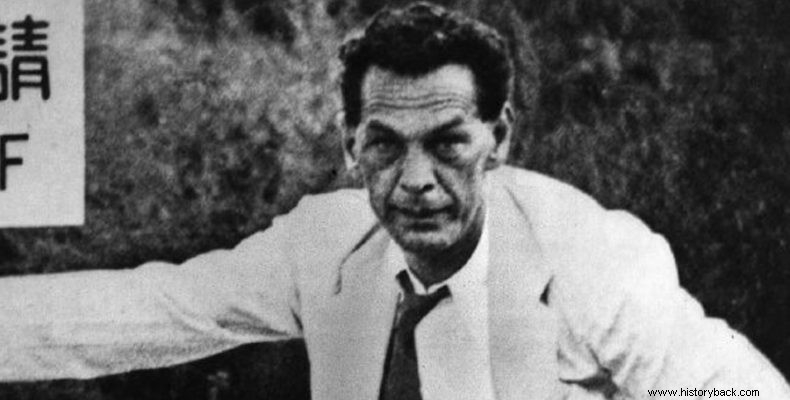
Reinhard Georg was the best spy who worked for the Soviets before and during World War II. He was of German descent, but embraced communism and considered the Soviet Union his homeland. He was sent by his superiors to Moscow, Tokyo, after first managing to penetrate the state apparatus of National Socialist Germany, even becoming a member of the National Socialist party.
He was sent to Tokyo as a correspondent for a German newspaper and gradually took up a position in the press office of the German embassy there, gaining the trust of the German authorities, but not of the Japanese counterintelligence.
Jorge had informed the Soviets that after their defeat at Halkin Gol, the Japanese did not intend to attack them again. He also informed Moscow of the impending German invasion, without being believed by Stalin. Jorge was finally arrested by Japanese counterintelligence in October 1941 and after being tried he was finally executed in 1944.
Jorge's story came back into the public eye after the discovery of a 1938 letter from German Foreign Minister Joachim von Ribbentrop, in which the National Socialist official congratulated the spy for his action and for his "extraordinary contribution to Germany"! This letter was sent to Jorge on his 43rd birthday. It was discovered by chance by a Japanese who bought old books from a used bookshop in Tokyo. The letter was hidden inside a book.
The letter best reflects the confidence of the Germans in Jorge, the spy who, if he had been believed by Stalin, the course of World War II could have been completely different.
The Soviets, only in 1964, when Khrushchev achieved "de-Stalinization", Jorge's action was recognized and he, after his death, was honored as a hero of the Soviet Union. As long as the "father" Stalin was alive, Jorge's action should not be known as it revealed the enormous errors of the "enlightened" leader.
Japan releases data
Japan has released secret documents from 1942 about the Soviet espionage network of Reinhard Georg, the German who worked for the USSR and is believed to have contributed the most to the Soviet victory against Hitler.
The documents present the relevant data. In October 1941, 35 people, including high-ranking Japanese, were arrested for spying for the USSR. The German Jorge had fought in WWI, where he was captured by the Russians and eventually became a communist and trained as a spy. He was then sent to Tokyo where he developed a close relationship with the German ambassador there and even joined the staff of the embassy.
This informed Moscow that Japan, although an ally of Germany, did not intend to attack the USSR alongside Hitler. Thus Stalin was able to transfer the anti-Japanese Soviet forces from Manchuria to the European theater of war and repel the German attack on Moscow.
According to a Japanese newspaper, the documents also include personal files of Taizo Ota, a Japanese counterintelligence officer involved in the Jorge case. The declassified documents are dated May 1942, when Tokyo announced the arrest of Jorge and the dismantling of his network, which had been achieved six months earlier. The documents reveal that the Japanese government at the time tried to downplay the whole issue and had given similar instructions to the press.
The news was reported on the inside pages of Japanese newspapers, with no pictures and big headlines. Reference to a high-ranking Japanese official who is a member of the network was also prohibited.
